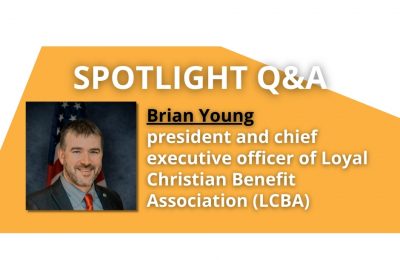Shaun B. Adrian is a senior partner at MacDonald Illig and a member of the firm’s Estates and Trusts Group. He works with individuals and families to establish estate plans tailored to the client’s needs, personal goals and tax objectives during life and after death. Shaun concentrates his practice in the areas of estate planning, estate and trust administration, and elder law.
Matthew B. Wachter is an associate at MacDonald Illig, where he is a member of the firm’s Business Transactions and Trusts & Estates practice groups. He concentrates his practice in the areas of business and tax, business succession planning and estate planning and administration.
A Personal Care Agreement is a formal document that outlines the role, responsibility and duties of a care provider. In the right circumstances, the agreement can eliminate uncertainty and limit the anxiety associated with ensuring that care is provided for loved ones and family members who require help and assistance.
Providing Peace of Mind
A Personal Care Agreement appoints a specific care provider and tasks him or her with providing for the daily needs of a care recipient. A care recipient does not give up personal freedom or the right to provide for themselves; rather, a care provider is named by the document and tasked with ensuring that a safe and healthy environment is maintained for the care recipient. The care provider is tasked with increasing the care and services provided as the need for care and assistance with day-to-day activities and life skills grows over time.
Service Provided
Although the terms of a Personal Care Agreement are detailed and specific, the document should give the care provider the flexibility necessary to respond to everchanging circumstances. Nonetheless, a care provider is generally required to ensure that a care recipient is provided with balanced meals, safe and clean accommodations, clean laundry and bedding, assistance with financial matters and adequate medical care. The document outlines when services begin, the location where services are performed, the minimum time commitment required (for example, number of hours per week) and compensation paid. Safeguards can be included to remove a care provider who does not adequately perform his or her duties.
Power and Authority to Act
When naming a care provider under a Personal Care Agreement, it may be advantageous to name the care provider as the care recipient’s “agent” in any separately executed financial or healthcare power of attorney document. The care provider may more readily assist and manage the care recipient’s financial and medical affairs if designated as agent
under such documents. Individual facts and circumstances should always be considered, and despite the potential advantages, it may be wise to separate the role of care provider and agent among two or more parties in some circumstances.
Payment for Services Rendered
A care provider is compensated for services performed under the terms of a Personal Care Agreement. The amount of compensation must be “reasonable,” and such amount will vary depending on the means of the care recipient, scope of care provided and any understanding between concerned loved ones and family members. A care provider typically acts as an “independent contractor” and reports and pays self-employment and income tax as required.
Consequences to Medicaid Qualification
As the care recipient’s assets diminish, it is important to note that compensation paid to a care provider in a properly drafted Personal Care Agreement should not jeopardize eligibility under any state and federal programs that pay for nursing home care. This is especially important when a family member is paid to provide care to an elderly parent (or family member) who subsequently applies for Medical Assistance. In such instance, the Pennsylvania Department of Human Services will not treat the amount paid to a family member as a gift for purposes of determining eligibility for nursing home benefits under the Medical Assistance program.
Conclusion
A Personal Care Agreement is a great tool to ensure that a trusted care taker looks after the welfare of a care recipient, and when properly drafted, the document may provide the added benefit of “peace of mind” to the care recipient’s loved ones and family members.
For more information, contact Shaun B. Adrian or Matthew B. Wachter at MacDonald Illig Attorneys at 814/870-7600.













